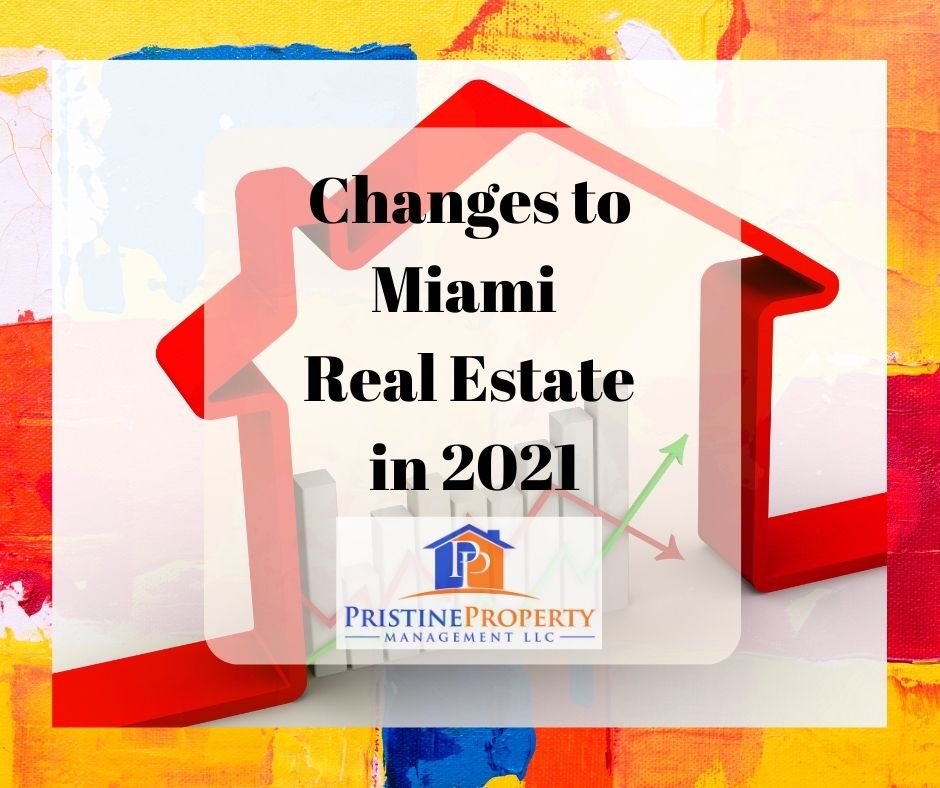Changes to Miami Real Estate in 2021
The pandemic has thrown the world into chaos. With lockdowns, quarantines, and new social distancing rules in place everywhere, the real estate paradigm has pretty much shifted to accommodate this wave of change. Almost all industries have felt the strain including real estate, and the crisis has impacted millions of jobs while battering the economy. We have all been weathering the changes that COVID-19 brought into our lives. With a vaccine making its way across the globe, there appears to be a light at the end of the pandemic tunnel, but what does the future hold for Miami residential real estate? What revelations have been learned about the real estate industry over the last year? Will any of this apply to the way we do business in the future?
Higher demand for Single Family Housing vs Condos.
The pandemic changed the way people think about real estate. Safety has become a more important concern for those living in the city and the pandemic has made people more aware of how much life can change in urban areas when everyone works from home. Potential homebuyers’ priorities have shifted, and single-family homes have become incredibly popular because it is easier to social distance in a single-family home, than a shared condo building, with shared spaces like elevators, hallways, and lobbies.
In addition, a rising number of millennials are reaching a point in their lives that they are focusing on starting a family. The pandemic may have accelerated this shift. The proof is in the numbers and in South Florida we are seeing a record 12-year low in single-family home inventory. Residential real estate will need to pay greater attention to features that enhance security, provide opportunities to social distance (even after the pandemic) and do so in a way that makes people comfortable.
The Leasing Process/ Taking the digital leap.
The way real estate is leased will never be the same. Before the crisis, the real estate industry had been moving toward digitizing processes and creating digitally enabled services for tenants and users. Practically overnight, physical distancing and the lockdown of physical spaces have magnified the importance of digitization, particularly by measures such as tenant and customer experience. Within residential real estate, players that have invested in digital sales and leasing processes—using virtual open houses and showings via zoom and other app-based technology, quickly allowed their residents to find the right space for themselves. We are way ahead of where we would have been in a ‘normal’ 2020-2021, but the benefit is being able to refine and streamline our use of technology and make it better for the future.
Shift away from larger cities to the suburbs.
The great migration of residents to Florida has accelerated due to the pandemic. In Miami, we see many buyers coming from the Northeast, places like New York, Chicago, and Boston. They realize they can work from home, get more for the money here in South Florida and take advantage of the nice weather we have year-round.
Luxury home prices were up 42% to an average of $2.8 million in the most recent quarter, according to a report from brokerage Douglas Elliman. Palm Beach is particularly strong, with the CEO of Elliman calling it the hottest market in the world right now, CNBC reported. The share of residential buyers in the Miami area coming from other parts of the U.S. has doubled from a decade ago, according to the ISG World Report.
It may be a trend that continues throughout the year, but in general, people will get back to life as they were. People who like living in the city will continue to do so and those who like suburban settings will go that route.
The effects of COVID will continue to impact the ability of tenants to pay rent.
We do not know what is going to happen in the coming months, so we are addressing situations one day at a time. The strategy used to work with our tenants, is based on communication and the implementation of agreeable terms. We have remained proactive, based on what owners are willing to allow, while simultaneous assisting the tenant. The covid-19 Relief package proposed by the new administration provides hope.
Many owners and managers face drastically reduced operating income, and almost all are nervous about how many tenants will struggle to make their lease payments. Lower income households were hit much harder by this recession than any other in memory. The big worry is workforce housing, and that is where mortgage delinquencies and rent delinquencies have increased the most. It will be awfully hard for folks who have fallen way behind in their mortgage or owe mountains of back rent.
The Future of the Miami Real Estate Market.
The period following the global financial crisis of 2008 revealed that some real estate players were able to adapt and flourish while others faded. Individual firms’ abilities to continue to operate efficiently will depend on how they respond to immediate challenges to the industry—particularly the uncertainty surrounding the tenant's ability to pay rent and low inventory. In the medium to long term, the changed behaviours forced upon the industry will have likely altered the way consumers and businesses use and interact with real estate.

 Login
Login

